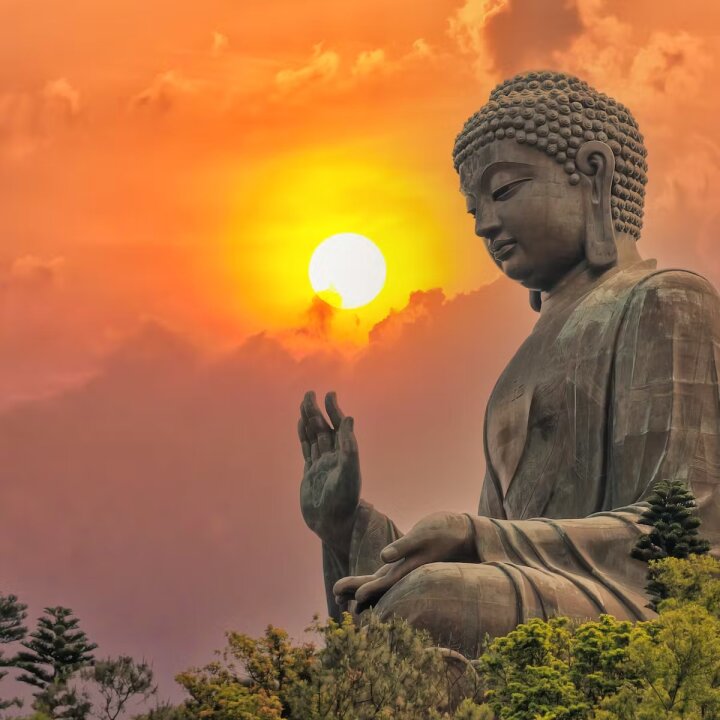The Basic Passage on the Four Sublime States from the Discourses of the Buddha:-
I. Here, monks, a disciple dwells pervading one direction with his heart filled with loving-kindness, likewise the second, the third, and the fourth direction; so above, below and around; he dwells pervading the entire world everywhere and equally with his heart filled with loving-kindness, abundant, grown great, measureless, free from enmity and free from distress.
II. Here, monks, a disciple dwells pervading one direction with his heart filled with compassion, likewise the second, the third and the fourth direction; so above, below and around; he dwells pervading the entire world everywhere and equally with his heart filled with compassion, abundant, grown great, measureless, free from enmity and free from distress.
III. Here, monks, a disciple dwells pervading one direction with his heart filled with sympathetic joy, likewise the second, the third and the fourth direction; so above, below and around; he dwells pervading the entire world everywhere and equally with his heart filled with sympathetic joy, abundant, grown great, measureless, free from enmity and free from distress.
IV. Here, monks, a disciple dwells pervading one direction with his heart filled with equanimity, likewise the second, the third and the fourth direction; so above, below and around; he dwells pervading the entire world everywhere and equally with his heart filled with equanimity, abundant, grown great, measureless, free from enmity and free from distress.
— Digha Nikaya 13



